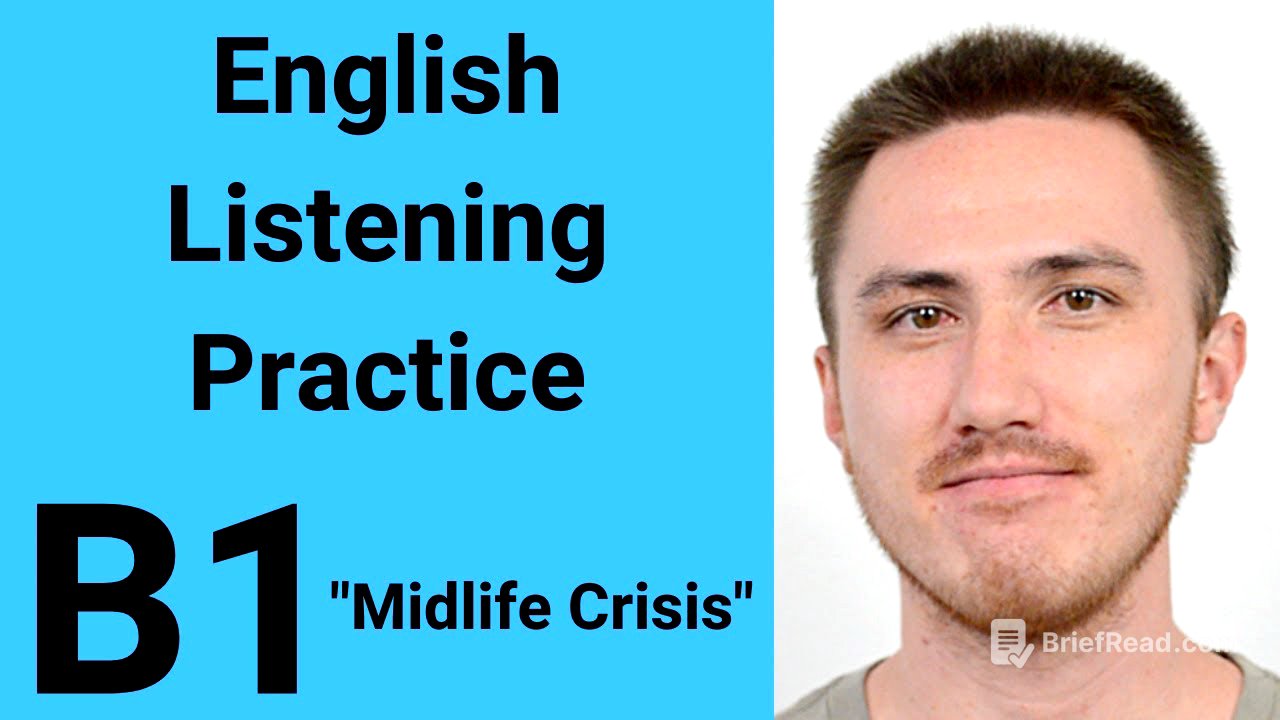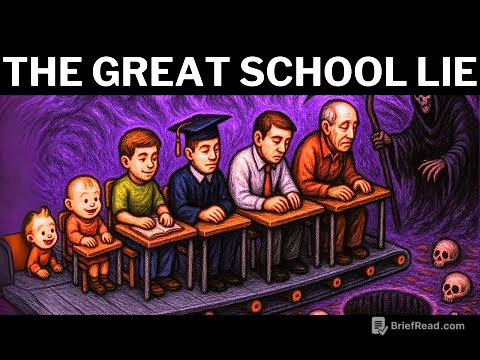TLDR;
This video discusses the concept of a mid-life crisis, defining it as an emotional crisis involving identity and self-confidence, typically occurring between the ages of 40 and 60. It explores various factors contributing to this crisis, including financial stress, changing family dynamics (empty nest syndrome), physical changes, and a sense of accomplishment. The video emphasizes that while this period can be challenging, individuals can overcome it by accepting changes, refocusing, and ultimately becoming stronger.
- Mid-life crisis is an emotional crisis of identity and self-confidence.
- Common factors include financial stress, empty nest syndrome, physical changes, and a lack of accomplishment.
- People can overcome this period by accepting changes and refocusing.
Introduction to Mid-Life Crisis [0:00]
The video introduces the topic of mid-life crises, defining it as an emotional crisis related to one's identity and self-confidence. This crisis typically occurs between the ages of 40 and 60, during which individuals often question their life choices, identity, and desires. Given that they have lived about half their lives, people may feel unhappy with their current situation, which is an understandable sentiment.
Financial Stress [1:18]
The video identifies financial stress as a significant factor in mid-life crises. Adults often feel overwhelmed by the need to provide for themselves and their families, while also planning for their children's future expenses and their own retirement. This can lead to a feeling of barely getting by, which is particularly stressful in one's 40s or 50s, when people often expect to be financially stable.
Changing Family Dynamics [1:55]
Changing family dynamics, specifically the "empty nest syndrome," also contribute to mid-life crises. In the U.S., children often move out at a relatively young age, leading parents in their 40s and 50s to experience the departure of their adult children. This transition can be difficult, as parents may feel a sense of emptiness after dedicating much of their energy to raising their children.
Physical Changes [2:28]
Physical changes associated with aging are another factor in mid-life crises. As people begin to feel their bodies changing, it can be challenging to accept a physical decline. The inability to do things they once could can cause worry about their future health, potentially driving individuals to become more active and get in shape.
Sense of Accomplishment [2:53]
A person's sense of accomplishment also plays a role in mid-life crises. Feeling like one hasn't achieved much by this stage can be discouraging. The desire to feel like they've done great things and served a higher purpose may lead people to change their careers in search of something more meaningful.
Overcoming the Crisis [3:12]
Despite the negative aspects, the video emphasizes that people can eventually overcome this period. By accepting these changes and refocusing their lives, individuals can work through this challenging time and emerge stronger as a result.





![[Calvin University] Reading and Writing 1-1](https://wm-img.halpindev.com/p-briefread_c-10_b-10/urlb/aHR0cDovL2ltZy55b3V0dWJlLmNvbS92aS9pX1N2b2prcVNCdy9ocWRlZmF1bHQuanBn.jpg)



